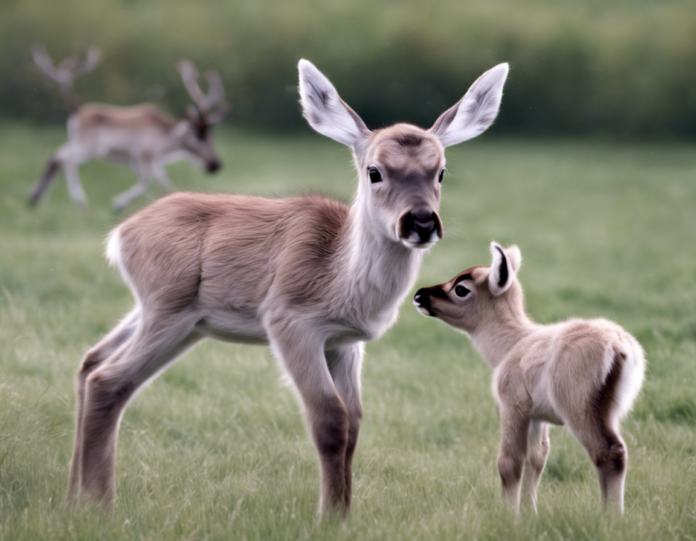Introduction
Rearing baby reindeer can be an incredibly rewarding experience, but it also requires a significant amount of time, effort, and dedication. Just like any other animal, baby reindeer have specific needs that must be met in order for them to thrive. In this comprehensive guide, we will explore the different aspects of raising baby reindeer, from their diet and housing requirements to their healthcare and socialization needs.
Choosing the Right Reindeer
When choosing a baby reindeer to rear, it is essential to select a healthy, young animal from a reputable breeder. Make sure to inspect the animal thoroughly for any signs of illness or injury before bringing it home. Baby reindeer should be at least a few weeks old before being separated from their mothers, as they rely heavily on their mothers for nutrition and comfort during the early stages of their lives.
Housing and Enclosure
Baby reindeer need a safe and secure enclosure that provides ample space for them to move around and graze. The enclosure should be equipped with shelter to protect the reindeer from harsh weather conditions, such as extreme cold or heat. It is essential to regularly clean the enclosure and provide fresh bedding to ensure a clean and healthy environment for the baby reindeer.
Diet and Nutrition
Proper nutrition is crucial for the health and growth of baby reindeer. They should be fed a diet that mimics their natural diet in the wild, which consists mainly of grass, lichens, and other vegetation. Additionally, baby reindeer should have access to fresh water at all times to stay hydrated. It is important to consult with a veterinarian or animal nutritionist to ensure that the baby reindeer is receiving the proper balance of nutrients in their diet.
Healthcare and Veterinary Care
Regular veterinary check-ups are essential for ensuring the health and well-being of baby reindeer. Vaccinations, deworming, and hoof care are all important aspects of healthcare that should not be neglected. In addition, it is crucial to monitor the baby reindeer for any signs of illness or injury and seek veterinary care immediately if any concerns arise.
Socialization and Enrichment
Baby reindeer are social animals that thrive in the company of others. It is important to provide opportunities for the baby reindeer to interact with other reindeer to prevent loneliness and encourage natural behaviors. Enrichment activities, such as providing toys or puzzles for the reindeer to engage with, can also help stimulate their minds and prevent boredom.
Training and Handling
Proper training and handling are essential for building a bond of trust between you and the baby reindeer. Positive reinforcement techniques, such as rewards for good behavior, can help create a positive association with training sessions. It is important to be patient and consistent with training, as baby reindeer can be sensitive animals that respond well to gentle, respectful handling.
Frequently Asked Questions (FAQs)
1. Can baby reindeer be kept as pets?
Baby reindeer require specialized care and a large outdoor enclosure to thrive, making them unsuitable as pets for the average household.
2. What is the gestation period of reindeer?
Reindeer have a gestation period of around 7.5 months, with females usually giving birth to a single calf.
3. Do baby reindeer need to be bottle-fed?
In most cases, baby reindeer do not need to be bottle-fed, as they typically nurse from their mothers for the first few months of their lives.
4. How long do baby reindeer stay with their mothers?
Baby reindeer usually stay with their mothers for around 6-8 months before they are weaned and become more independent.
5. Are there any legal restrictions on owning baby reindeer?
Before acquiring a baby reindeer, it is essential to check local laws and regulations regarding the ownership of exotic animals, as there may be restrictions in place.
Conclusion
Rearing baby reindeer can be a fulfilling and unique experience for those willing to put in the time and effort required to meet their specific needs. By providing proper housing, nutrition, healthcare, socialization, and training, you can ensure that your baby reindeer grows up to be a healthy and happy adult. Always remember to consult with experts, such as veterinarians and reindeer breeders, to ensure that you are providing the best possible care for your baby reindeer.


Recent comments